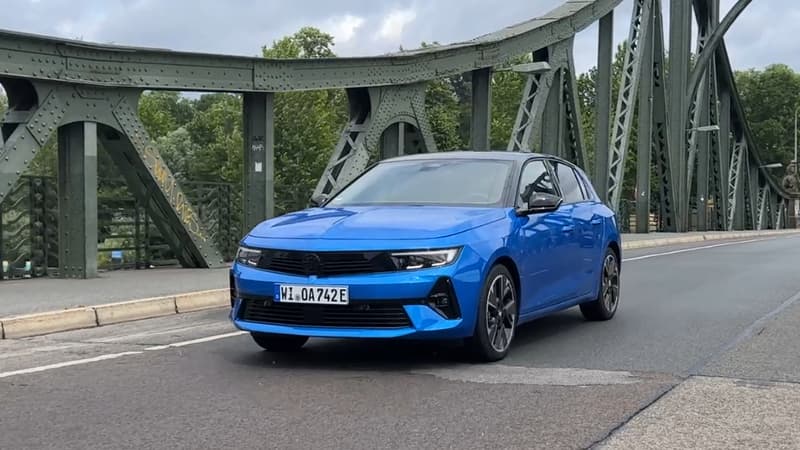“At the time of the Thirty Glorious Years, the place was the size of Monaco”, but without nostalgia the inhabitants of Russelsheim, in Germany, birthplace of Opel, celebrated on Saturday the 125th anniversary of the German brand and its ambitious electric change . On the eve of the European elections, the symbol that represents the anniversary of this flagship of the national industry did not escape Chancellor Olaf Scholz, who came to participate in the celebrations.
“We support the development of electromobility,” said the social democratic leader in a speech to the hundreds of people gathered. “To want to return now is not only to jeopardize everything that has already been achieved, it is also to jeopardize our future success, our future prosperity as an industrial nation,” he said.
The fall in sales of electric cars in Europe and the criticism from various political forces, during the European campaign, denouncing a too rapid move towards electric vehicles, worry manufacturers. Some candidates in the vote question the 2025 deadline set by the Twenty-seven to ban the sale of new vehicles with internal combustion engines, pointing in particular to the risk of social collapse in European factories.
Prepare for the future
“Electricity is the hope to maintain work, it is an essential step, because if we stay with the diesel engine, it will be a total closure,” responds Stefan Trautmann, who came to celebrate the anniversary of the factory from which the first Opel. The car came out in 1899. However, the 56-year-old left the company where he worked in finance and design four years ago, as part of a voluntary exit plan. He found a job with a competitor.
“Jobs have been reduced,” but “fewer workers is always better than none!” he says while testing a rust-colored electric Opel Frontera. After experiencing its heyday as one of the largest European manufacturers, the brand experienced difficult times starting in the 90s. Now nature has taken over part of the industrial complex, covering the ruins of the test tracks of the time in that the Russelsheim site was “the center”. the size of Monaco,” says Thomas, a visitor who introduces himself as the son, grandson and great-grandson of Opel employees.
The German brand, acquired from General Motors by Peugeot-Citroën in 2017 and belonging to the Stellantis group since 2021, is now adopting its electrification strategy. Sales increased by 15% in 2023, with a 13% share for electric vehicles. Christian Müller, Opel engineer since 2010, walks hand in hand with his daughter through the anniversary exhibition. “The electric shift is an enormous and essential challenge for the future of our children,” he says.
1,500 km in Corsa
For the head of Opel, Florian Huettl, it is not about going backwards and the fall in sales of electric cars in Germany, with the end of purchasing aid, does not change anything. “The dynamic in France and England remains strong,” he assures AFP. Some 8,300 people work at the Russellsheim plant today, compared to 15,000 employees before the acquisition by Stellantis.
“At Opel today there are fewer employees than five or six years ago. This is part of our competitiveness efforts. Beyond that, the transition to electric requires other qualifications in many areas,” explains Mr. Huettl. Artem Shevchenko, 23, a Ukrainian aviation engineering student, came from Lithuania for the anniversary and traveled 1,500 kilometers in his Opel Corsa to visit the land of Adam Opel, founder of the brand that began manufacturing sewing machines and bicycles.
“My dream was to come here,” admits this fan. “The models have all the features of a luxury car, at an affordable price, for real people!” he exclaims. With the transition to electric, the brand wants to try to sell basic range products for the general public, promising a model that costs around 25,000 euros, without revealing its launch date.
Source: BFM TV


